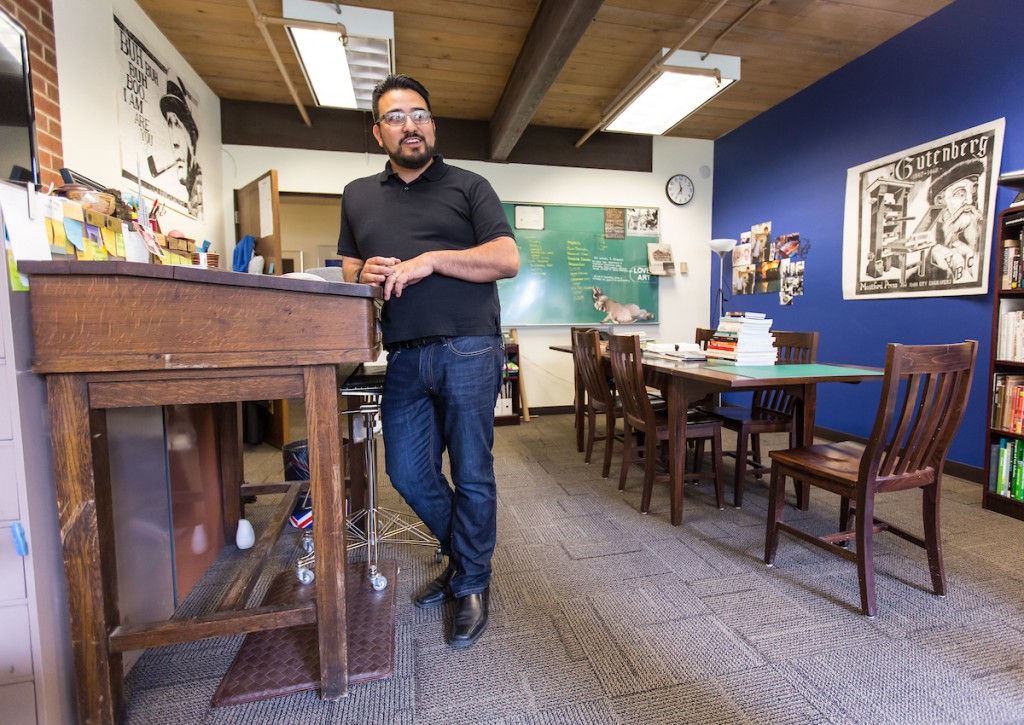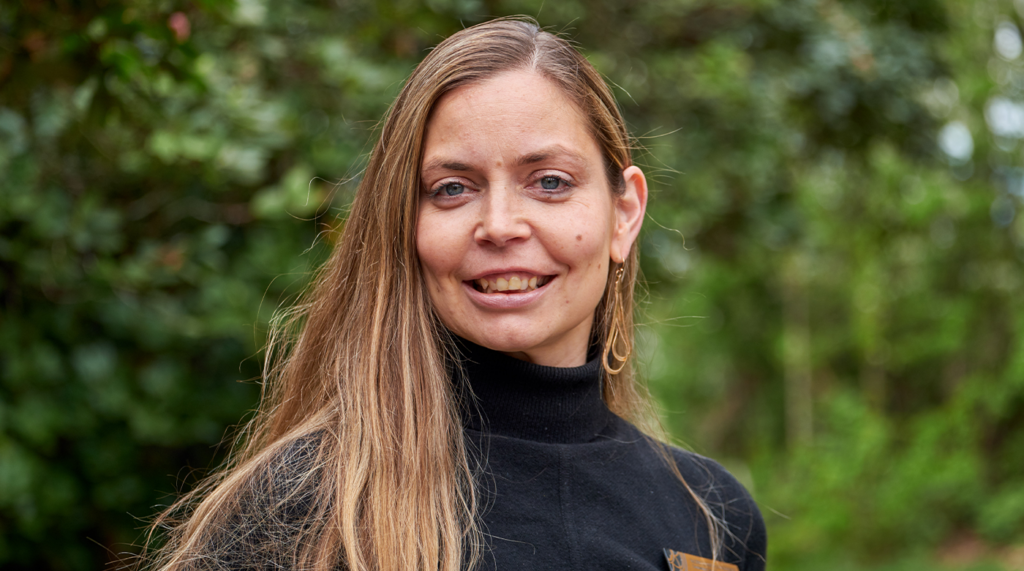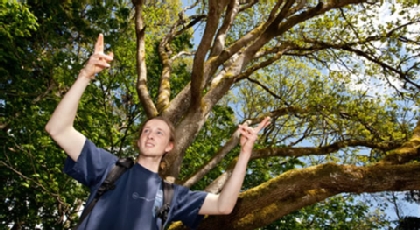Page 33 • (353 results in 0.028 seconds)
-

day, we are guided by our core values of Safety, Professionalism, Caring, Resourcefulness, Integrity and Alaska Spirit at work and in our communities. She locked in on caring, which she felt that Mr. Tilden aptly communicated during the lecture. Janelle concluded: “Mr. Tilden was focused on customers and not only profit in his talk. I wanted my design to reflect his tone, because capturing his voice and message seemed like the most accurate way to advertise the event and communicate what people
-
, thought and action, philosophy provides a much needed voice in PLU’s mission “to empower students for lives of thoughtful inquiry, service, leadership and care – for other persons, for the community and for the earth.” Philosophy can also challenge humans to think critically about their relationship with the rest of nature – hopefully before it’s too late. PLU philosophy professor Erin McKenna regularly teaches “Philosophy, Animals, and the Environment” and publishes and presents in the area of
-
partly, have a voice in describing themselves, rather than always being described as the Others by the dominant culture. Subaltern Studies has sometimes been misused by scholars, who have used it to give blanket explanations of power relations within a given society, rather than doing the careful work of examining the complexity of these relations in detail. However, it nevertheless proved useful to me and to my students when, as part of the 2008 PLU Fall Gateway Program in Oaxaca, we partnered with
-

normal. One size fits all is not going to work. We are collectively building a new future that requires fully alive humans who are connected to themselves, one another, and who carry hope. What are students saying they need from PLU? PLU students are a microcosm of the communities from which they came, reflecting the varieties of strengths, pains, health, struggles, and desires of their communities. They are looking for a place of belonging where they matter and their voice matters—in a real
-

passionate about speaking for those who have no voice? The overarching goal of the program is preparation for generalist social work practice with individuals, families, households, groups, communities, and organizations. If you are excited about tackling some of today’s major social challenges and enjoy working with people, then social work may be just the career for you! Read Previous Stephanie Aparicio Zambrano ’23 discusses her PLU experience, psychology major & internship with the Dean of Students
-

other technical infrastructure is state of the art. It is worth noting that the performing arts center will not host just theater. Dance, opera and jazz performances will also use Eastvold Auditorium. Lectures, touring ensembles and other PLU-sponsored events will also take place there. It will be a very busy place. Phase II also includes many changes not related to theater. PLU’s cherished Tower Chapel is restored, renamed the Ness Family Chapel, thanks to a $2 million gift from Kaare and Sigrunn
-

data to ask themselves the question, “Do I stay or do I go?” Rather then getting stuck in this dilemma, commit to staying for a certain amount of time and put your energy into being the best you can be and asking your partner to meet you there. Don’t ignore the voice that asks “do I stay or do I go,” simply acknowledge it and choose not to dwell on it for the time being. Many times, as people commit to a brighter future, the brighter future begins to emerge. And if it doesn’t, they have fewer
-
Elizabeth Herzfeldt-Kamprath. “It mainly focuses on oil and where oil comes from.” “There’s not one right answer,” Plog said, about the issues of energy consumption, dependence and waste. But what the three have developed, along with students from the University of Calgary, is a documentary that asks those questions of energy and gives voice to what a variety of people have to say about it, in the film “Oil Literacy.” The film’s premiere is at 2 p.m., Saturday, Oct. 30 in the Microsoft Theater at the
-

. “That’s when things really got going because we knew we had the funds,” he said. By working with the Native Plants Salvage Alliance, he was able to secure native seeds and native species for replanting on campus. Plants like snowberry, Oregon grape and beaked hazelnut. All in all, there were 25 plant types for replanting. The money was there, and there were people ready to get their hands dirty, but they needed a voice to organize them. They needed someone to lead them and focus on making a difference
-

was younger but haven’t played for a long time. Sometimes I will sing a melodic line when coaching piano students to try to get a point across about phrasing, but I don’t have very good control of my voice, so it doesn’t always work… I feel much more comfortable to play piano! Can you please name some of the festivals you’ve participated in and concerts you’ve performed? I’ve performed in festivals, honors recitals and a Washington state conference through the Oregon and Washington Music Teacher
Do you have any feedback for us? If so, feel free to use our Feedback Form.


